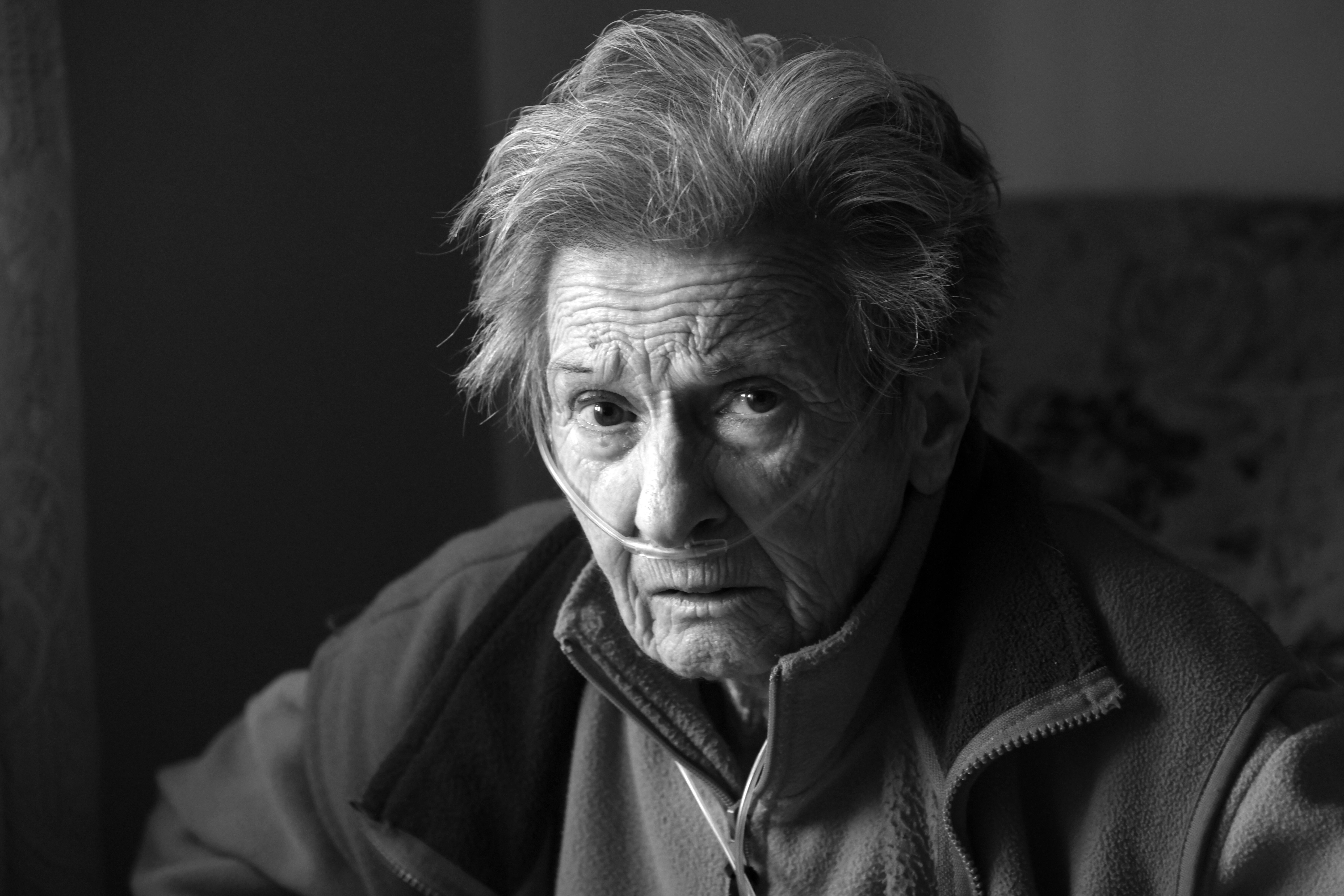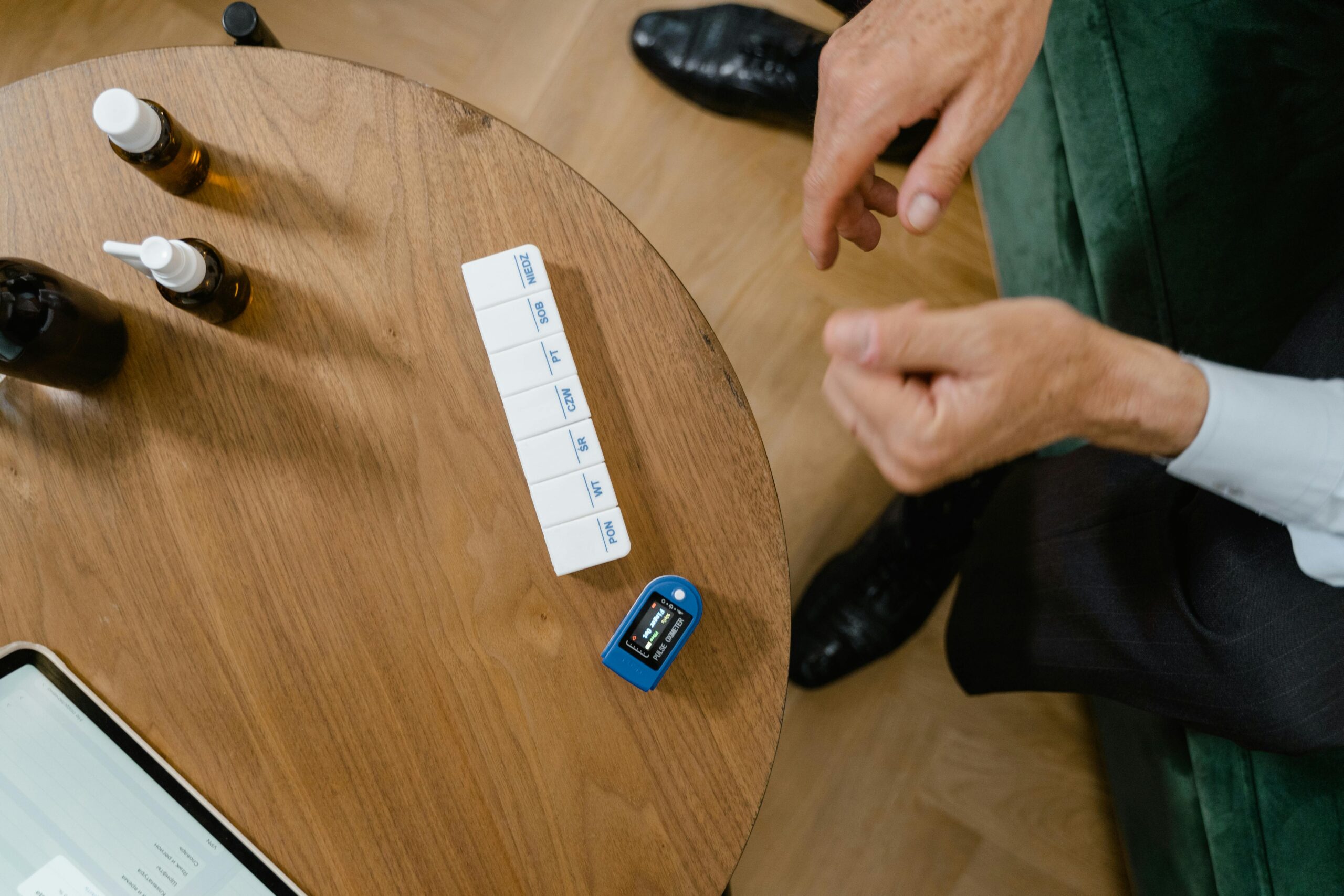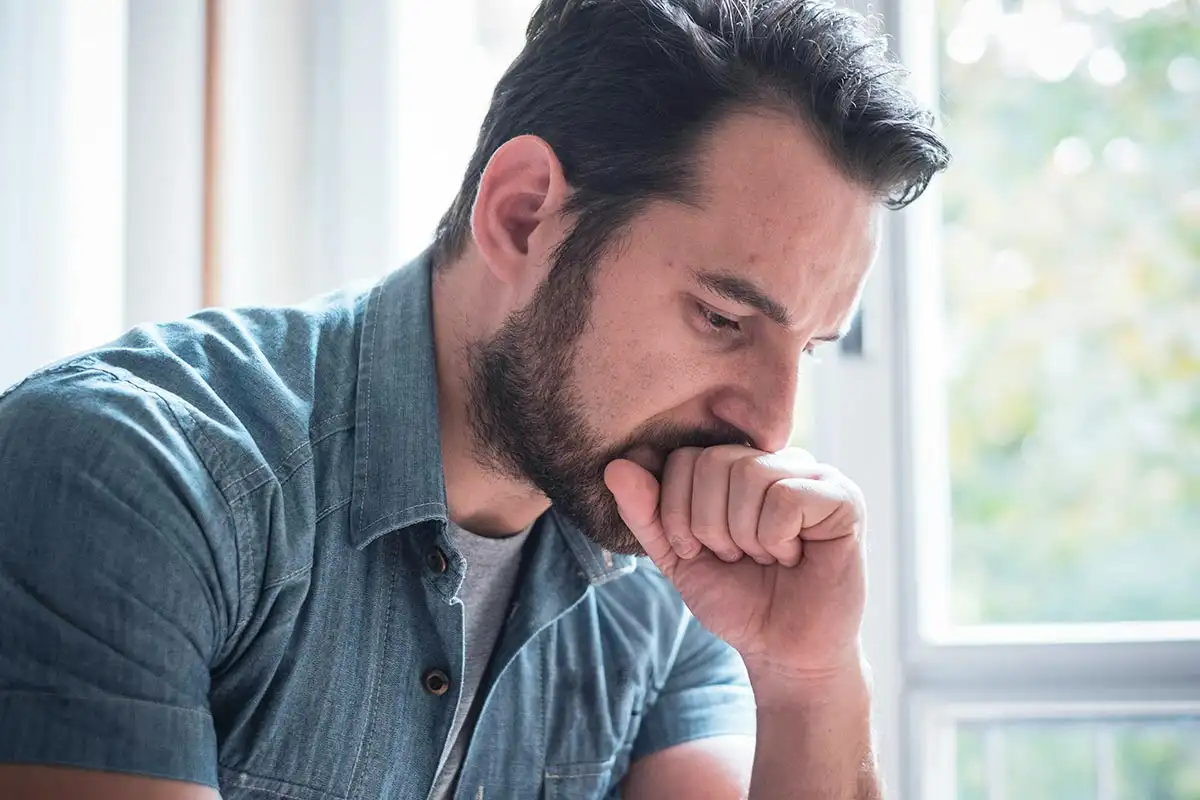
Defining IOP Treatment in the Age of Virtual Care in California
Medically Reviewed by:

Dr. Marco M. Zahedi
Medical Director, Compassion Recovery Center

Dr. Michael Majeski
Licensed Psychologist (LP), Compassion Recovery Center
Table of Contents
The Evolving Landscape of Addiction Recovery: Understanding IOP and Virtual Care
Making the decision to seek help for drug or alcohol addiction is a courageous first step. The path to recovery is unique for everyone, and finding the right kind of support is crucial. One highly effective approach is an Intensive Outpatient Program (IOP). IOPs offer a structured and supportive environment while allowing individuals to maintain their daily responsibilities like work, school, or family care. They represent a vital part of the addiction treatment continuum, providing a robust level of care that’s more concentrated than standard outpatient therapy but less restrictive than residential or inpatient programs. The importance of IOPs lies in their ability to help individuals build a strong foundation for sobriety, develop coping mechanisms, and integrate recovery principles into their everyday lives.
In recent years, particularly in tech-forward states like California, the way healthcare is delivered has undergone a significant transformation. The rise of virtual care, or telehealth, has broken down many traditional barriers to accessing treatment. This shift means that high-quality addiction support, including Virtual IOP Programs, is now more accessible than ever. For residents of Orange County and across California, this opens up new possibilities for receiving care from the comfort and privacy of their own homes. The growing relevance of virtual care is not just a trend; it’s a response to the need for more flexible, convenient, and discreet treatment options. If you’re exploring ways to address substance use, understanding these modern approaches is key. You can reach out today to learn more about how these innovative services can support your journey.
At Compassion Recovery Center, we specialize in providing these modern, remote drug and alcohol rehab services, primarily serving individuals in Orange County, California, through telehealth. We understand the complexities of addiction and are committed to offering evidence-based, compassionate care that fits into your life. Our services range from Outpatient Detox support to comprehensive Intensive Outpatient Programs (IOP) and Partial Hospitalization Programs (PHP), all delivered virtually. We also provide specialized Mental Health Treatment and Dual Diagnosis Treatment for those facing co-occurring disorders alongside addiction. Whether you’re seeking Drug Rehab Programs or Alcohol Rehab Programs, our team is here to guide you with empathy and expertise. We believe that recovery is possible for everyone, and our virtual platform makes accessing high-quality care more achievable. To find out if our programs are a good fit for you and to understand your coverage, we encourage you to verify your insurance online.

Understanding IOP Treatment: A Closer Look
An Intensive Outpatient Program (IOP) is a structured form of addiction treatment that provides a higher level of care than traditional weekly outpatient therapy but does not require clients to live at a treatment facility. This makes it an excellent option for individuals who need substantial support but also wish to maintain their commitments to work, school, or family. Typically, an IOP involves several hours of programming per day, multiple days a week. The core components often include group therapy, individual counseling, psychoeducation, and skills-building workshops. Group therapy forms a cornerstone, allowing participants to share experiences, learn from peers, and develop a sense of community in recovery. Individual therapy sessions provide personalized attention, addressing specific challenges and tailoring treatment plans. Psychoeducational groups focus on understanding addiction, relapse prevention, coping strategies, and emotional regulation. The overall structure is designed to immerse individuals in the recovery process while they continue to navigate their daily lives, offering a practical bridge between intensive treatment and independent sober living. Many find this balance crucial, as detailed in our guide on understanding different addiction treatment programs.
The benefits of participating in an IOP for addiction recovery are numerous and significant. One of the primary advantages is the ability to apply newly learned coping skills and strategies in real-world situations almost immediately. Unlike inpatient programs where individuals are in a protected bubble, IOP participants face everyday triggers and stressors while still having robust support to fall back on. This real-time application helps solidify recovery skills and builds confidence. IOPs are also generally more affordable than residential treatment, making them a more accessible option for many. Furthermore, they provide a strong support network through group sessions and interaction with therapists and peers who understand the journey. This community aspect is vital for reducing feelings of isolation, a common struggle in early recovery. For those who have completed a higher level of care, such as inpatient rehab or a Partial Hospitalization Program (PHP), an IOP serves as an effective step-down, gradually reintegrating them into daily life with continued support. If you’re wondering about the specifics of an IOP schedule, you can get an idea from our blog post on what a day in rehab looks like inside an IOP schedule.
Compared to inpatient programs, IOPs offer remarkable flexibility and accessibility. Inpatient treatment requires individuals to live at a facility for an extended period, which can be disruptive to careers, family life, and educational pursuits. For many, especially working professionals or parents, taking that much time away is simply not feasible. IOPs, particularly Virtual IOP Programs, allow individuals to receive intensive treatment while still living at home and managing their responsibilities. This flexibility means that help is within reach for a broader range of people. Accessibility is further enhanced as IOPs can be located within communities or, in the case of virtual options, accessed from anywhere with an internet connection. This is particularly beneficial for those in rural areas or with transportation challenges. Compassion Recovery Center is proud to offer these flexible Intensive Outpatient Program (IOP) options to residents of Orange County and beyond, ensuring that quality care can fit into your life. We encourage you to get help now to discuss how our programs can be tailored to your unique circumstances.
The Rise of Virtual Care in California
The healthcare landscape, particularly in a technologically advanced state like California, has been steadily shifting towards telehealth and virtual care models for several years. This evolution is driven by a desire for greater convenience, improved access, and more patient-centered approaches. Patients increasingly appreciate the ability to connect with healthcare providers from the comfort of their homes, saving travel time and reducing the logistical hurdles often associated with in-person appointments. For addiction treatment, this shift is particularly transformative. “Telehealth addiction treatment” is no longer a niche concept but a rapidly expanding field, offering everything from initial consultations and therapy sessions to ongoing support groups. California has often been at the forefront of embracing such innovations, fostering an environment where virtual care can thrive and reach those who might otherwise struggle to access services. The state’s infrastructure and tech-savvy population have contributed to the smoother adoption of these digital health solutions, making quality care more readily available.
While the trend towards virtual care was already underway, the COVID-19 pandemic dramatically accelerated its adoption across all sectors of healthcare, including addiction treatment. Suddenly, telehealth wasn’t just an alternative; it became a necessity. Lockdowns, social distancing measures, and concerns about virus transmission made in-person services challenging, if not impossible, for a period. This forced a rapid scale-up of virtual care platforms and a broader acceptance by both providers and patients. Many individuals who might have been hesitant to try “telehealth addiction treatment” discovered its benefits firsthand. They found that virtual sessions could be just as effective and engaging as in-person ones, often with added advantages like increased privacy and reduced stigma. The pandemic demonstrated the resilience and adaptability of virtual care models, proving that high-quality, compassionate addiction support could be delivered remotely without compromising efficacy. This period was pivotal in normalizing virtual treatment and cementing its place as a legitimate and valuable mode of healthcare delivery in California and beyond. The lessons learned during this time continue to shape how services like our “Remote IOP Orange County” programs are designed and delivered.
California has a relatively progressive legal and regulatory framework for telehealth, which has facilitated the growth of virtual care services. State laws generally support the use of telehealth and often include provisions for payment parity, meaning insurers are required to reimburse for telehealth services at rates comparable to in-person care. This is crucial for making “Virtual IOP California” programs financially accessible. Regulations also address important aspects like patient privacy and data security, ensuring that virtual consultations meet HIPAA (Health Insurance Portability and Accountability Act) standards. While specific rules can evolve, the overall environment in California is conducive to the expansion of telehealth. Organizations like Compassion Recovery Center operate within these guidelines to provide secure, confidential, and effective remote treatment. Understanding these frameworks helps build trust in virtual care, assuring patients that their rights are protected and the quality of care is maintained. For more detailed information on how insurance works with these services, understanding California’s parity laws for addiction treatment coverage can be very insightful. If you have questions about your specific situation or want to check insurance coverage for our programs, our team is ready to assist.

Virtual IOP: A New Era in Addiction Treatment
A Virtual Intensive Outpatient Program (Virtual IOP) takes the proven structure and therapeutic components of a traditional IOP and delivers them through a secure, online platform. This means individuals can participate in group therapy, individual counseling, educational sessions, and family support, all from the privacy and convenience of their own homes, or any location with a stable internet connection. At Compassion Recovery Center, our Virtual IOP Program is designed to offer the same level of comprehensive care and support as an in-person program, making it an ideal solution for those seeking “Remote IOP Orange County” services or flexible treatment options throughout California. The primary difference from traditional IOP lies in the delivery method; instead of commuting to a physical facility, clients log into a secure virtual environment. This removes geographical barriers and significantly reduces the time commitment associated with travel, making intensive treatment more accessible for busy professionals, parents, or those with mobility issues.
The technology and platforms used in virtual IOP are key to its success and effectiveness. Reputable programs utilize HIPAA-compliant video conferencing software to ensure that all interactions are private and secure, just like in a physical clinic. These platforms often include features like screen sharing for presentations, breakout rooms for smaller group discussions, and secure messaging for communication between clients and therapists. Beyond live sessions, many virtual IOPs incorporate patient portals or dedicated apps where clients can access resources, complete assignments, track their progress, and communicate with their care team. At Compassion Recovery Center, we carefully select and implement user-friendly, reliable technology to create an engaging and supportive virtual treatment environment. The aim is to make the experience as seamless and interactive as possible, fostering connection and participation despite the physical distance. We understand that technology can sometimes feel daunting, so we provide support to help clients navigate these platforms effectively, ensuring that the focus remains on their recovery, not on troubleshooting tech issues. You can learn more about setting yourself up at home for virtual rehab to maximize your experience.
The advantages of virtual IOP are compelling and address many of the common obstacles people face when seeking addiction treatment. Convenience is perhaps the most significant benefit; the ability to attend therapy sessions without commuting saves valuable time and energy, which can be redirected towards recovery activities or personal responsibilities. This is particularly beneficial for those in “Remote IOP Orange County” and other areas where traffic or distance can be a factor. Privacy is another major draw. Receiving treatment from home can reduce the stigma some individuals feel about seeking help for addiction. There’s no need to be seen entering a treatment facility, which can be a concern for those in prominent community roles or who simply prefer discretion. Furthermore, virtual IOPs often offer greater accessibility. They can reach individuals in underserved rural areas or those with physical disabilities that make travel difficult. This model of “telehealth addiction treatment” truly broadens the reach of quality care. Compassion Recovery Center is committed to leveraging these advantages to help more people start your free assessment and begin their journey to a healthier life, free from substance dependence.
Key Components of Virtual IOP
Cognitive Behavioral Therapy (CBT) is a cornerstone of many effective addiction treatment programs, and it translates exceptionally well to a virtual setting. “Online CBT therapy” within a virtual IOP focuses on helping individuals identify, understand, and change negative thought patterns and behaviors that contribute to substance use. In online sessions, therapists work with clients, both individually and in groups, to recognize triggers, develop healthier coping mechanisms, and challenge distorted thinking. Virtual platforms allow for the use of shared digital worksheets, interactive exercises, and real-time feedback, making online CBT engaging and practical. Clients learn to reframe unhelpful thoughts (e.g., “I can’t cope without alcohol”) into more empowering ones (e.g., “I have learned new ways to manage stress”). The skills acquired through online CBT are directly applicable to everyday life, helping individuals navigate cravings, manage stress, and make choices that support their sobriety. Compassion Recovery Center incorporates evidence-based therapies like CBT into our Virtual IOP Program, ensuring clients receive effective tools for lasting change. Our approach aligns with proven methods, as discussed in our beginner’s guide to evidence-based therapies.
Medication-Assisted Treatment (MAT) is an evidence-based approach that combines behavioral therapies with FDA-approved medications to treat substance use disorders, particularly those involving opioids or alcohol. The integration of “MAT treatment online” into virtual IOPs is becoming increasingly common and effective. While the initial assessment for MAT may sometimes require an in-person visit depending on regulations and the specific medication, much of the ongoing management, counseling, and support can be provided remotely. Prescriptions can often be sent electronically to a local pharmacy. Through telehealth, medical professionals can monitor a client’s progress, manage side effects, adjust dosages, and ensure adherence to the treatment plan. This is combined with the therapeutic components of the virtual IOP, such as counseling and group support, to address both the physiological and psychological aspects of addiction. For individuals in California, including Orange County, seeking Drug Rehab Programs or Alcohol Rehab Programs that include MAT, virtual options can significantly improve access and continuity of care. Compassion Recovery Center can help determine if MAT is appropriate for your situation and guide you through the process. You can contact us for a confidential assessment to discuss your needs.
Addiction rarely affects only the individual struggling with substance use; it often deeply impacts relationships with partners and family members. Recognizing this, “virtual couples counseling rehab” is an important component that can be integrated into a comprehensive virtual IOP. Online therapy sessions provide a safe and structured space for couples to address the ways addiction has affected their relationship, improve communication, rebuild trust, and develop healthier dynamics. Therapists specializing in addiction and relationships can facilitate these sessions remotely, guiding couples through difficult conversations and teaching them skills to support each other’s recovery and well-being. The convenience of virtual counseling can make it easier for both partners to participate, even with busy schedules or if they are in different locations temporarily. Addressing relationship issues concurrently with individual recovery work can significantly strengthen the support system for the person in treatment and foster a more positive home environment conducive to long-term sobriety. Compassion Recovery Center understands the importance of healing relationships and offers support that considers the family system. If you or a loved one are struggling, exploring these Dual Diagnosis Treatment options which can often include family components can be beneficial.
Challenges and Considerations in Virtual IOP
While virtual IOPs offer numerous advantages, it’s important to acknowledge potential challenges. One significant hurdle can be technology barriers. Not everyone has reliable high-speed internet access, a suitable device (computer, tablet, or smartphone), or a private space at home for therapy sessions. Digital literacy can also be an issue for some individuals who may not be comfortable using video conferencing software or online platforms. At Compassion Recovery Center, we try to address these concerns during the initial Free Assessment process. We provide clear instructions and support for using our platforms, and discuss potential solutions for access issues. For some, using a smartphone might be sufficient, while others might need to explore community resources for internet access. It’s crucial for providers of “Telehealth addiction treatment” to be mindful of these disparities and offer guidance. Addressing these technological aspects upfront helps ensure that clients can fully participate and benefit from programs like our “Remote IOP Orange County” services. For further reading, our article on overcoming common challenges in virtual addiction treatment offers more insights.
Maintaining patient engagement and retention in a virtual environment requires thoughtful strategies. Without the physical presence of a group or therapist, some individuals might find it harder to stay motivated or feel connected. The distractions of home, family responsibilities, or work can also compete for attention during virtual sessions. To counter this, virtual IOPs must create a dynamic and interactive experience. This includes using varied therapeutic techniques, encouraging active participation, fostering a strong sense of community within virtual groups, and providing regular, personalized check-ins. At Compassion Recovery Center, our clinicians are skilled in facilitating engaging online sessions and building rapport through digital means. We emphasize the importance of creating a dedicated, distraction-free space for therapy and encourage clients to actively participate as they would in an in-person setting. Regular communication and clear expectations about participation help maintain engagement. Building accountability is also key; staying accountable in a virtual program is a topic we address to help clients succeed. The goal is to make the virtual experience feel as supportive and immersive as possible.
A common question is whether virtual IOP is as effective as traditional in-person treatment. This is a valid concern, especially for those new to the concept of “Telehealth addiction treatment.” Extensive research conducted over the past decade, and particularly accelerated during the pandemic, has largely shown that telehealth for mental health and substance use disorders can be just as effective as in-person care for many individuals. The quality of the program, the expertise of the clinicians, the client’s motivation, and the therapeutic alliance formed are more critical factors than the modality of delivery. For certain conditions or individual circumstances, in-person treatment might be preferred or necessary (e.g., for those requiring intensive medical supervision during Outpatient Detox or those without a stable home environment). However, for many, a “Virtual IOP California” program offers comparable outcomes with added benefits of convenience and accessibility. Compassion Recovery Center is committed to evidence-based practices, ensuring our virtual programs meet high standards of care. We encourage open discussion about any concerns you might have when you reach out today, so we can help you determine the best fit for your recovery journey.
Success Stories and Positive Outcomes in Virtual IOP
The true measure of any treatment program lies in its ability to help individuals achieve lasting recovery and improve their quality of life. We’ve seen countless individuals thrive through our “Virtual IOP California” programs at Compassion Recovery Center. Consider Sarah, a working mother in Orange County, who was struggling with alcohol dependence but felt she couldn’t step away from her job or family to attend an inpatient facility. Our “Remote IOP Orange County” allowed her to participate in intensive therapy sessions from home during hours that accommodated her schedule. She found the online group sessions surprisingly connecting and was able to immediately apply the coping skills she learned to manage work stress and family dynamics. Or take John, a young adult living in a more remote part of California, far from easily accessible treatment centers. For him, “Telehealth addiction treatment” was a lifeline. He engaged fully in online CBT and found support from peers across the state, reducing his sense of isolation. These stories, while anonymized for privacy, reflect a common theme: virtual IOPs remove barriers and provide effective, compassionate care that integrates into real life. These successes underscore the power of accessible treatment in fostering hope and transformation. Many clients express gratitude for the privacy and comfort of healing in their own space, which helped them open up more readily in therapy.
The positive outcomes observed in clinical practice are increasingly supported by research and studies evaluating the efficacy of virtual IOPs and telehealth for substance use disorders. Numerous studies have demonstrated that telemental health services, including those for addiction, can yield outcomes comparable to in-person treatment. Research highlights include similar rates of treatment retention, patient satisfaction, and reductions in substance use. For example, studies published in reputable journals like the Journal of Addiction Medicine and Telemedicine and e-Health have explored the effectiveness of delivering therapies such as CBT and motivational interviewing via virtual platforms, finding them to be robust and impactful. The National Institute on Drug Abuse (NIDA) also acknowledges the growing body of evidence supporting telehealth as a means to expand access to care. At Compassion Recovery Center, we stay informed by this research and are committed to employing evidence-based therapies within our virtual framework. The convenience of virtual platforms can sometimes even improve adherence to treatment, as it mitigates issues like transportation difficulties or scheduling conflicts that can lead to missed in-person appointments. More information on the general effectiveness can be found in resources like how effective is telehealth for substance abuse treatment.
The success of virtual IOP programs also hinges on their ability to provide comprehensive care that addresses the multifaceted nature of addiction. This includes not just therapy but also case management, relapse prevention planning, and support for co-occurring Mental Health Treatment conditions through Dual Diagnosis Treatment. Positive outcomes are often seen when programs offer a continuum of care, allowing individuals to step down to less intensive virtual outpatient services as they progress. The flexibility of “telehealth addiction treatment” allows for this continuity, supporting individuals through various stages of their recovery. Furthermore, the ability to easily incorporate family members or partners into therapy sessions via “virtual couples counseling rehab” components, regardless of their location, can significantly enhance the support system and improve long-term outcomes. When individuals feel supported, understood, and equipped with practical skills, their chances of sustained recovery increase dramatically. If you’re ready to explore how these positive outcomes could become your reality, we invite you to Admissions Information to learn more about getting started.
Choosing the Right Virtual IOP Program in California
Selecting a quality “Virtual IOP California” program is a critical decision that can significantly impact your recovery journey. With the rise of telehealth, many options may seem available, so it’s important to know what to look for. First, ensure the program is licensed and accredited, and that its therapists are credentialed and experienced in addiction treatment. A quality program will have a clearly defined structure, including a set number of hours per week for individual and group therapy, and will utilize evidence-based practices like Cognitive Behavioral Therapy (CBT) or Dialectical Behavior Therapy (DBT). Inquire about the technology they use – is it secure, HIPAA-compliant, and user-friendly? Ask about their approach to client engagement and how they foster a supportive online community. It’s also wise to read reviews or testimonials if available. Don’t hesitate to ask questions about success rates or how they measure treatment outcomes. Our blog post on questions to ask before enrolling in an online IOP provides a helpful checklist. Finally, consider if the program offers a continuum of care, such as step-down options to less intensive outpatient support after completing the IOP.
Personalized care and robust support are paramount in any addiction treatment setting, and virtual IOPs are no exception. Addiction is a complex condition that affects individuals differently, so a one-size-fits-all approach is rarely effective. Look for a program that conducts a thorough initial assessment to understand your unique history, challenges, strengths, and recovery goals. Based on this assessment, a tailored treatment plan should be developed. This plan might include specific therapeutic modalities, goals for individual therapy, and any necessary coordination for Dual Diagnosis Treatment if co-occurring mental health conditions are present. Ongoing support should extend beyond scheduled therapy sessions; this could include access to case managers, crisis support, or supplementary resources. At Compassion Recovery Center, we emphasize a client-centered approach. We believe that truly understanding your individual needs is the first step towards effective treatment. When you’re looking for “Remote IOP Orange County” services or telehealth options across California, ensure the program prioritizes you as an individual, not just a diagnosis. The role of case managers and recovery coaches can be crucial in providing this personalized support.
Compassion Recovery Center’s approach to virtual IOP is rooted in providing accessible, high-quality, and empathetic care specifically tailored for individuals in California, with a strong focus on serving Orange County residents through our “Remote drug rehab Orange County” services. We combine proven, evidence-based therapies with the flexibility and convenience of a telehealth platform. Our experienced and licensed clinicians are skilled in creating engaging and supportive virtual environments where healing can happen. We offer a comprehensive Virtual IOP Program that includes individual therapy, group therapy, family involvement when appropriate (including options for “virtual couples counseling rehab”), and psychoeducation. We understand the nuances of “telehealth addiction treatment” and are equipped to manage challenges like technology adaptation and maintaining engagement. Our programs are designed to fit into your life, allowing you to uphold work, family, or educational commitments while receiving the intensive support you need. We also address co-occurring disorders and can integrate “MAT treatment online” support where appropriate. If you’re ready to take the next step, we encourage you to start your free assessment with us today. Let us show you how compassionate, personalized care can make a difference in your recovery journey.
The Future of Recovery: Embracing Virtual IOP
The journey of addiction treatment is profoundly personal, yet the need for effective, accessible, and compassionate care is universal. Virtual Intensive Outpatient Programs (Virtual IOPs) represent a significant advancement in meeting these needs, particularly in a dynamic state like California. As we’ve explored, these programs offer a powerful combination of structured, evidence-based therapy with unparalleled flexibility and convenience. By leveraging “telehealth addiction treatment,” individuals can access high-quality care, including “Online CBT therapy” and support for “MAT treatment online,” from the privacy of their homes. This model breaks down traditional barriers such as geographical distance, transportation issues, and the stigma that can sometimes prevent people from seeking help. For residents of Orange County and across the state, “Virtual IOP California” options like those offered by Compassion Recovery Center mean that recovery support can more easily integrate into daily life, rather than requiring a complete disruption of work, family, or education.
The potential of virtual IOP in addiction treatment is immense. It not only expands access to care but also offers a level of personalization and discretion that many individuals find appealing. The ability to participate in therapy without the added stress of a commute, or to engage in “virtual couples counseling rehab” with a partner who may be in a different location, are just a few examples of its practical benefits. While challenges such as technology access and maintaining virtual engagement exist, they are being effectively addressed by dedicated providers who prioritize client support and innovative program design. The growing body of research affirming the efficacy of telehealth for substance use disorders further solidifies virtual IOP as a viable and valuable treatment modality. As technology continues to evolve, we can anticipate even more sophisticated and engaging virtual care experiences, further enhancing the recovery journey. If you or a loved one are considering options for Drug Rehab Programs or Alcohol Rehab Programs, we strongly encourage you to consider virtual IOP. It’s a modern, effective, and compassionate path towards lasting sobriety.
At Compassion Recovery Center, we are proud to be at the forefront of providing specialized “Remote IOP Orange County” services and comprehensive virtual addiction treatment throughout California. We understand the courage it takes to seek help, and our mission is to provide a supportive, non-judgmental, and effective pathway to recovery. Our team is dedicated to offering personalized care that addresses your unique needs and circumstances. Whether you are just beginning to explore treatment options or are seeking a flexible way to continue your recovery journey, we are here for you. We invite you to learn more about our Virtual IOP Program and other telehealth services. Take the first step towards a brighter future by reaching out to us. You can Contact Us for a confidential consultation, or if you’re ready, Verify Insurance to understand your coverage options. Your recovery journey can begin today, and we are here to walk alongside you every step of the way.
What does virtual IOP mean?
What is the structure of the intensive outpatient program?
What are the rules for telehealth therapy in California?
What is the biggest challenge in telehealth?
What conditions cannot be treated with telemedicine?
Struggling to balance life while needing support? Get expert virtual care and start your recovery journey, anytime, anywhere.
We’re learning more each day.
Researchers and doctors are making exciting progress in understanding mental health and addiction—bringing hope to millions.
Your genes don’t define you.
Genetics can play a part, but they don’t decide your future. Mental health is shaped by many factors, and healing is always possible.
There's no one-size-fits-all.
The right treatment often includes a mix of therapy, medication, and compassionate care—tailored just for you.


















